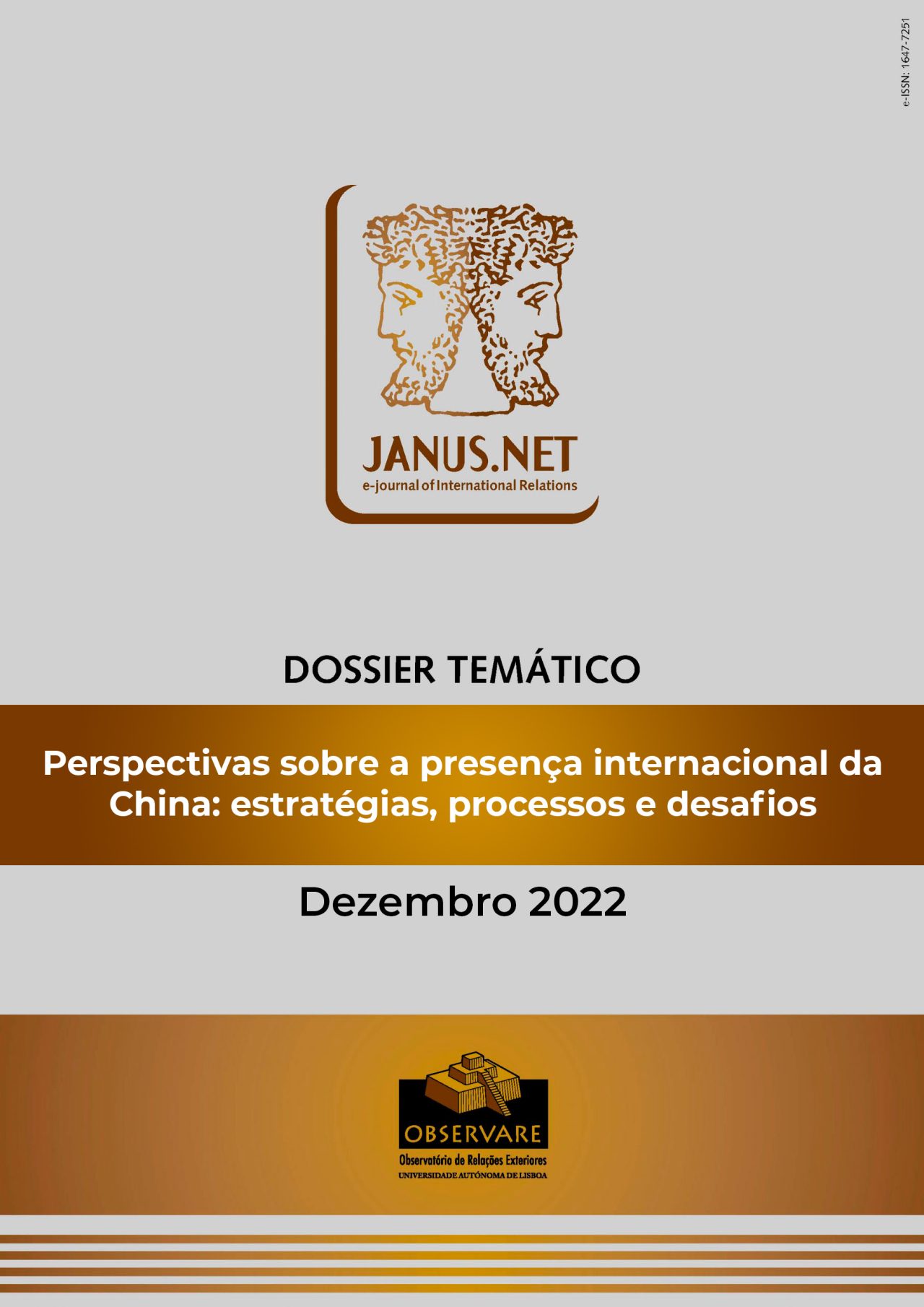Portuguese strategies towards China during the Covid19 Pandemic.
DOI:
https://doi.org/10.26619/1647-7251.DT22.5Keywords:
Portugal-China relations, small states, covid19, Theory of Asymmetrical Negotiations, strategy choicesAbstract
Small states, despite their power deficits, are able to influence large states. This paper
explores how Portugal appears to have selected strategies to modulate yet improve its
relations with China during the Covid19 pandemic. According to the Theory of Asymmetrical
Negotiations (TAN) advanced by Habeeb, small states adopt soft strategies when they have
high levels of commitment, worse alternatives available to them, and a low degree of control.
During the pandemic, an increase in deficits drove Portugal’s government to seek to expand
exports, attract investment, and improve its competitiveness. The authors find that Portugal
has exhibited different behaviour regarding commitment, seeking alternatives, and exerting
control in issues related to investment, export, and competitiveness. Portugal has flexibly employed soft strategies towards China during the pandemic, while reacting to external
intervention from the US and maintaining internal compliance within the EU. With these
strategies, Portugal has successfully, and without conflict, defended its interests, maintained
its EU status, and limited the intensity of competition between the US and China regarding
Portugal.


